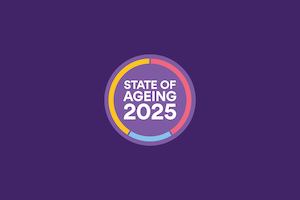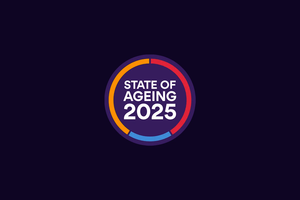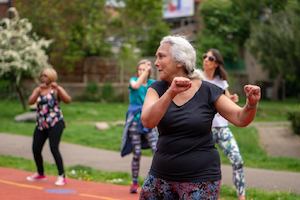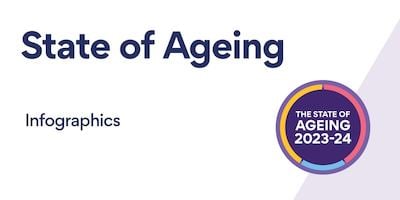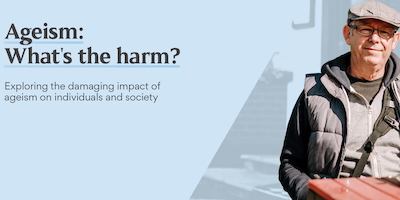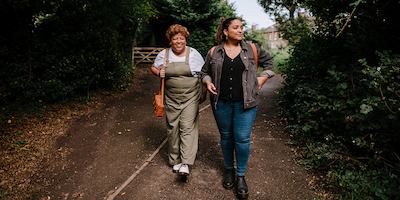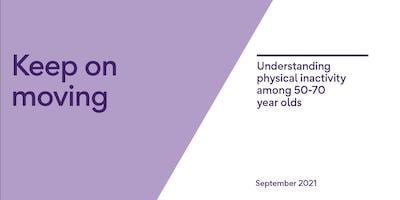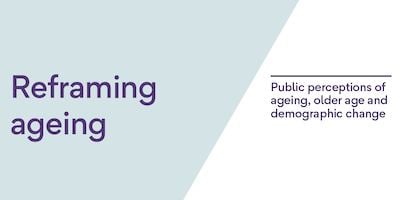Covid’s seismic shock on older people’s involvement in society still felt five years on

Older people’s health, employment and community connection have failed to recover since the pandemic, our new analysis reveals.
Five years on from the announcement of the first Covid-19 pandemic lockdown, the impact of the unprecedented health emergency is still being felt in the lives of many people aged 50 and over.
Our new State of Ageing 2025 report details how life expectancy has not returned to pre-pandemic levels while healthy life expectancy has greatly declined.
There are also 213,000 more people aged 50-64 economically inactive now than in 2020, a significant indicator of how the pandemic brought years of employment progress for older workers to a shuddering halt.
The State of Ageing 2025 report, to be published this Wednesday, also details a decline in rates of volunteering by older people in recent years with volunteer numbers struggling to recover since the pandemic.
And while older people are more likely to feel a strong sense of belonging, and satisfaction, with their neighbourhoods than younger people, rates of belonging and satisfaction have continued to decline among 50 to 64 year olds since 2020/21.
The findings add compelling evidence for the need of a Commissioner for Older People and Ageing in England - a proposal recently recommended by the parliamentary Women and Equalities Committee that also has the backing of more than 80 organisations and the vast majority of the general public.
Dr Carole Easton OBE, Chief Executive at the Centre for Ageing Better, said:
“The Covid-19 pandemic was disruptive in so many ways to our everyday lives and many older people are still counting the cost to this day.
“What our State of Ageing 2025 report shows is since the pandemic, older people’s contribution to our economy and wider society has been diminished to a significant degree. People in their fifties, sixties and beyond are being deprived of the opportunity to help businesses and the economy grow, are missing out on opportunities to help their communities flourish through volunteering and ultimately, are losing precious years to ill-health and dying prematurely.
“These trends can no longer be considered just temporary blips that will resolve themselves. Unless we take specific action, the negative impact of the Covid-19 pandemic will continue to limit the potential of our ageing population to the detriment of all of society, the economy and our country.
A Commissioner for Older People and Ageing is urgently needed for England to ensure that government policy-making considers the long-term needs of our ageing population and helps to deliver a national age-friendly strategy that gives a voice to the groups and issues that are currently marginalised, as well as focusing on reducing inequality in later life.
Life expectancy
The pandemic brought about a steep decline in what had been rising life expectancy - for men and women in 2020/22 it was ten and six months lower than before the pandemic in 2017/19.
In 2021/23, life expectancy at birth in England increased but remained almost seven months lower for men and three months lower for women than in 2017/19.
The drop in life expectancy was even more pronounced in some regions of the country - life expectancy at birth for men and women in the North West remains ten and five months lower than before the pandemic.
Life expectancy at birth for men is still lower than it was in 2017/19 in four out of five (80%) local authorities in Great Britain, and in almost three in four local authorities (70%) for women.
Healthy life expectancy at birth, the average number of years a person would expect to live in good health, has undergone an even more striking and sustained decline.
Nationally, healthy life expectancy is now 20 months lower for men and 22 months lower for women compared with 2017/19 – extending to 30 months lower than before the pandemic for men in the North West and 32 months lower for women in the South West and Yorkshire and the Humber.
The proportion of life spent in good health by men and women is currently the lowest it has been at any time since 2011/13.
Employment
People in their fifties and sixties were driving the country’s employment rate growth until the pandemic brought this progress to a halt.
While the employment rate of people aged 35 to 49 (86%) has recovered to surpass their pre-pandemic peaks, the rate for those aged 50 to 64 (71%) has not and continues to lag behind.
Volunteering
People aged 65 and over are still the most likely to volunteer but volunteering rates have not recovered since the end of the pandemic in any age group.
The rate of regular formal volunteering among people aged 65 to 74, fell from 31% pre-pandemic to 22% in 2020/21, and it has only recovered by one percentage point since then.
Before the pandemic, 23% of people aged 50 to 64 volunteered formally at least once a month. This has now fallen to 16%.
In contrast to formal volunteering, there was an initial spike in regular informal volunteering during the pandemic, except for people aged 75 and over who were required to shield. But since then rates have continued to fall for all age groups aged 50 and over and are now at their lowest for at least eight years.
Community connection
While the proportion of younger people who have a strong sense of belonging to their neighbourhood has increased overall in the last decade, it has remained relatively unchanged among people aged 50 and over.
Early in the pandemic there was an uptick in the proportion of people of all ages who felt a strong sense of belonging to their neighbourhood but this proportion dropped sharply in the year to 2021/22 and has continued to decline among adults younger than 65.
Among people aged 65 and over, there has been a slight recovery in the proportion who feel a strong sense of belonging to their neighbourhood since the end of the pandemic, but levels are still lower than their peak in 2018/19.
Older people are also more likely than younger people to feel satisfied with their neighbourhood but the proportion who do so has now fallen below pre-pandemic levels in every age group except for those aged 75 and over.
Dr Aideen Young, Senior Evidence Manager at the Centre for Ageing Better and co-author of the State of Ageing 2025 report, said:
“Our new State of Ageing report clearly shows that the disruption created by the Covid-19 pandemic has not gone away for many older people whose lives aren’t as rich and rewarding as they were before everything changed in March 2020. We cannot turn the tide without a concerted and targeted effort to create a more age-friendly society that enhances everybody’s independence, inclusion and wellbeing in later life.
Government, both national and local, other public bodies, employers and individuals all have a role to play. But if we really want those efforts to be coordinated, efficient and maximised, then we really need a Commissioner for Older People and Ageing in England who can be the focal point for helping deliver this vital change to our country.
As well as appointing a Commissioner for Older People and Ageing in England, to match the role already long-established in Wales and Northern Ireland, we are calling on the government to provide every local authority with sufficient resources to become an Age-friendly Community and for all local and strategic authorities to appoint an elected member to act as a champion for ageing and older people.
We are also calling on the national and local governments to invest in community spaces, high streets and public transport to make communities more accessible and walkable.
We are also calling on all organisations to put in place effective policies to tackle ageism and take action to improve the recruitment, retention and development of workers over 50.

